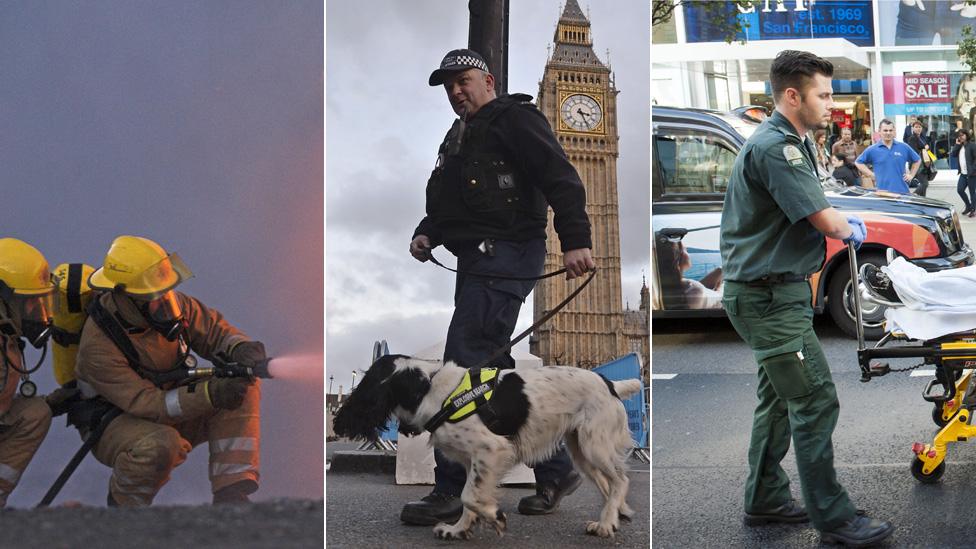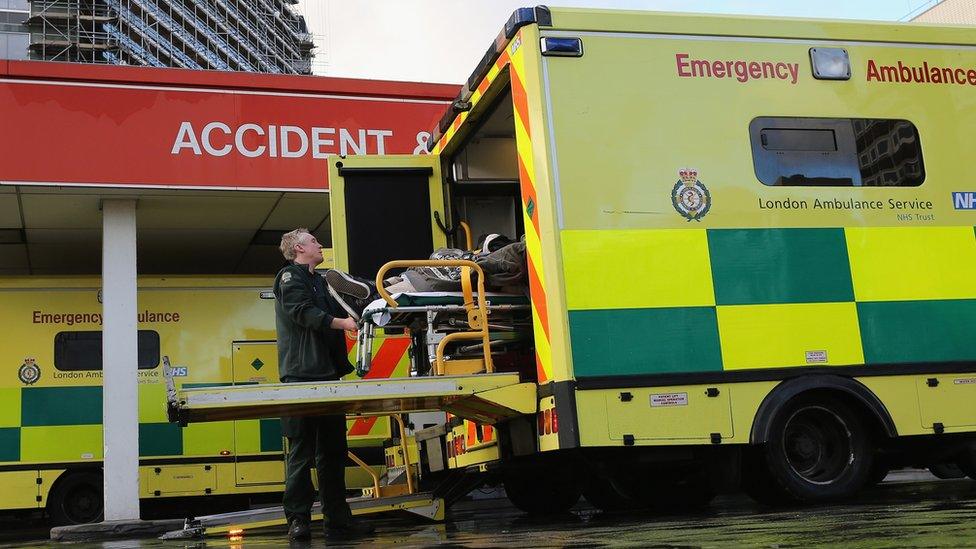Emergency services radio system '£3.1bn over budget'
- Published
- comments

A replacement for how Britain's emergency services communicate is set to go over budget by at least £3.1bn, a spending watchdog has warned, external.
The Home Office has already delayed switching off the existing system by three years to 2022.
But the National Audit Office (NAO) has raised doubts about whether the project will be ready by then.
Ministers say the new service would result in faster response times and better treatment.
The Emergency Services Network (ESN) would replace Airwave, a digital radio network introduced in 2000 and used by all 107 police, fire and ambulance services in England, Scotland and Wales.
Airwave links control rooms to response teams, as well as to 363 other bodies such as local authorities and train companies.
The Home Office says ESN will transform what is currently available.
Officials believe it would allow users access to high-speed mobile data and save money by sharing an existing commercial 4G network.
But the scathing NAO report suggests the Home Office has "failed" and that management of the programme has led to delays, increased costs and poor value for taxpayers.
Home affairs correspondent Danny Shaw said the report concludes that key technology is yet to be properly tested, with work not started on upgrading control rooms or providing coverage for police helicopters and air ambulances.

One NAO criticism is that work has not yet started on upgrading control rooms
The report also reveals that ministers are expected to approve a decision which will mean that the new system would not be "as resilient to power cuts" as the existing one.
NAO head Sir Amyas Morse said success of the new network was "critical to the day-to-day operations" of emergency services.
He said the Home Office "has already been through one costly reset and is in danger of needing another unless it gets its house in order".
'On track'
A Home Office spokesperson said the ESN was "on track to deliver an ambitious, world-leading, digital communications network" by 2022, resulting in savings of £200m a year.
But the NAO's report said although ESN is expected to be cheaper than Airwave in the long run, savings will not outweigh costs until at least 2029.
Criticisms come after ESN was due to be implemented in September 2017, with the transition being complete at the end of this year.
But the rollout was delayed and the department announced a "reset" of its approach, opting to phase in services - rather than launching the whole programme at once.
The watchdog said the reset had addressed some problems but that "to date, the Home Office's management of this critical programme has represented poor value for money."
- Published25 January 2017

- Published26 January 2016
